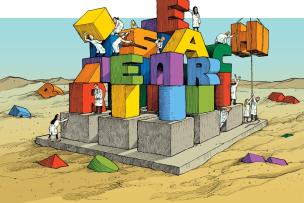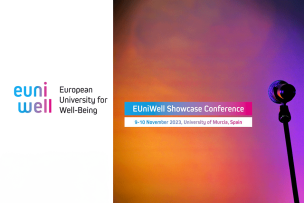Data Visualisation and Visual Storytelling (Research Training Academy)

There is a story in your data! This training will give you the skills and clues how to tell it visually. Data visualisation skills greatly affect research quality and the publications that are vital to an academic career. This is because scientific visuals are essential for analysing data, for communicating results and even for making discoveries by revealing patterns or trends. Poor data visualisations, however, can confound readers and can mislead interpretation or even impair public understanding of science.
The more complex the scientific data is, the more acute is this need for good data visualisation. Just think of polemics and misunderstandings around disease outbreaks or climate science! Yet, few scientists are trained in creating effective figures by making their data tell beautiful visual stories that have impact. Data visualisation is part science, part art.
In this training you can learn how to use your data to create an engaging, informative, compelling story by creating a visual abstract or an overview figure presenting your research. We will explore how to get the story right, without getting the science wrong. And we will also work on improving other scientific charts and graphics.
Training objectives
This training aims at helping you to effectively communicate your data by increasing your awareness of what is possible in scientific data visualisation. Whether your aim is presenting results to scientific peers or educating an outreach audience, you will learn in this training to generate better figures and presentations by tailoring them to your audience’s needs.
This training will introduce the basic tips & tricks for data visualisation and give you the confidence needed to improve your slides, design visuals for a scientific journal or engage in outreach activities like planning a short educational movie. Attendees will develop a repertoire of strategies for addressing common mistakes and leave the training with skills that allow them to understand what effective data visualisation and engaging visual storytelling actually is.
Content
- Analysing the needs and interests of your audience
- Understanding strengths, weaknesses and biases of how the human brain perceives visual data
- Choosing the right chart for the data: plot types (pie and bar charts, box plots, temporal data, pathways, heat maps, untangling complex plots, maps …)
- Working on the design process, editorial thinking, composition, layout and storyboard
- Using colour (colour coding, avoiding colour, mapping data to colour, heat maps)
- Optimising elements of figures (axes, grids, ticks, labels, callouts, arrows …)
- Keep it truthful, make it functional, beautiful and insightful, and improve clarity!
Teaching Methods
The training is highly interactive and practical, a combination of informative short lectures, followed by tasks, exercises and discussions. Our working language is English.
Pre-training task
Attendees will need to come with data sets and graphics they are working on. These can be for scientific papers, a slide presentation, or any other visual project. We will work on improving these.
Dates
- Group 1: Wednesday 17 April 9:00-16:00 CEST / 8:00-15:00 BST AND Wednesday 24 April 9:00-16:00 CEST / 8:00-15:00 BST
- Group 2: Thursday 16 May 9:00-16:00 CEST / 8:00-15:00 BST AND Thursday 23 May 9:00-16:00 CEST / 8:00-15:00 BST
Duration: 12h (2 days)
Trainer
Gabriele Hess-Fernandez, senior science journalist, editor-in-chief and university lecturer, Nantes Université
Application process
Please apply via the following link: https://questionnaires.univ-nantes.fr/index.php/226163?lang=en
Application deadline: 8 April 2024
Candidates may only apply if they can attend the workshop on both dates.
Only 16 spots are available for this training. Please note that the workshop has a limited number of spots. Each EUniWell university has an equal number of seats and applications are accepted on a first-come, first-served basis. If registrations exceed capacity, a waiting list may be implemented. In any case, you will be informed whether you are on the main list or on the waiting list.
To join the training, participants will need to accept the trainer’s invitation and log into the provided Google Classroom link. The trainer will upload presentations and working materials to Classroom before and during the training. If a participant cannot log in by using their university email address, they can try with a Gmail account. If they have any difficulties, they are encouraged to reach out to the organising team as soon as possible.
Contact
For more information about this training, please contact the Nantes Université team: euniwell[at]univ-nantes.fr
Further information
This workshop is part of the Research Training Academy under the EUniWell #Research project which receives funding from the European Union’s Horizon 2020 research and innovation programme under grant agreement No 101035821.


